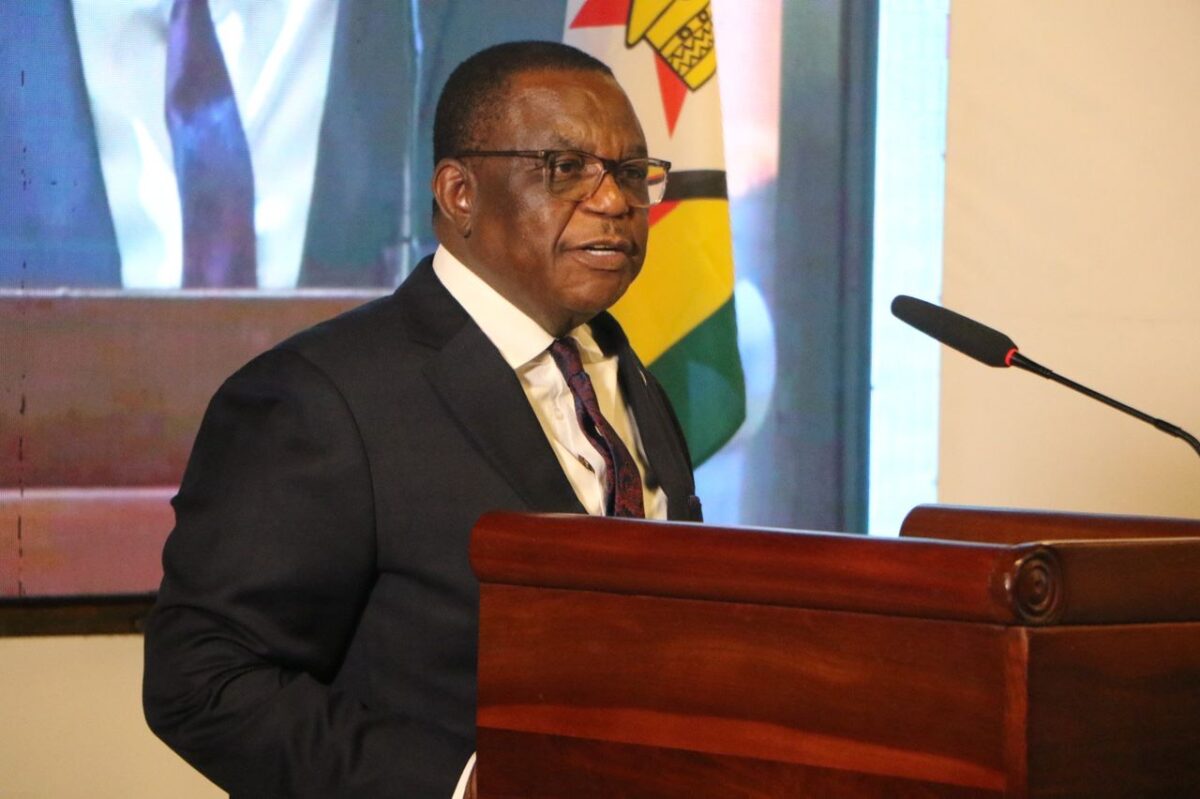Vice President Dr. Constantino Chiwenga voiced his disappointment yesterday after a visit to the Bhulaayo Kraal agricultural project in Binga, revealing significant concerns about the mismanagement and misuse of Government resources aimed at empowering local communities.
The project, initially launched as part of the Government's initiative for sustainable community development and financial inclusivity, was expected to cultivate 15,000 hectares of land, transforming the livelihoods of its beneficiaries. However, after a comprehensive inspection, VP Chiwenga discovered that the project's scope had been drastically reduced to just 400 hectares. Moreover, key infrastructure, such as the centre pivot irrigation systems, remains dormant, with equipment either stolen or left to deteriorate.
The Vice President's visit, which was meant to assess the progress of the initiative, revealed a worrying state of affairs. Upon arrival, he encountered only a small patch of cultivated land-likely an attempt to deceive him about the project's true progress-indicating a lack of genuine effort in implementing the scheme.
"The condition of agricultural equipment here is a concern; the centre pivot irrigation systems, which were brought to the scheme over five years ago, have never been utilised and are now susceptible to vandalism," said VP Chiwenga. "It is troubling to see such valuable resources going to waste while local communities are not reaping the benefits."
VP Chiwenga, who is a farmer himself, expressed concern over the apparent efforts to present a façade of success just ahead of his visit. "It's clear that this cultivation occurred just before my visit, following the confirmation of my tour. This is an attempt to make the project appear more successful than it actually is," he remarked.
The Bhulaayo Kraal project, which was meant to serve as a model of rural transformation, currently only benefits around 250 people, a far cry from the thousands that were anticipated. The Vice President stressed that the project was designed to uplift the entire community, with a focus on long-term sustainability and increased food security.
"Let us make use of these resources to leave a lasting inheritance for future generations-our children and grandchildren," Chiwenga urged. He highlighted the importance of the Bhulaayo Kraal initiative within the broader scope of the Government's agricultural food systems and rural transformation strategy.
Further compounding the problem, VP Chiwenga found large quantities of fertiliser left exposed to the elements, decomposing and rotting. The fertiliser, which could have been put to use by local farmers, is now an unfortunate waste, leaving many wondering why such critical resources had not been properly managed.
"Not only is this a waste of material, but it also represents a missed opportunity for local farmers who desperately need these resources to improve their livelihoods," he said.
VP Chiwenga also observed that water pipes intended to pump water from the Zambezi River lay unused and damaged, while fencing wire meant to protect the fields had been vandalised, further undermining the project's potential.
In light of these concerning findings, the Vice President called for a united effort among all stakeholders-communities, Government agencies, and traditional leaders-to take ownership of the project. He urged them not only to maintain the existing infrastructure but to actively engage in its use to enhance local livelihoods and bolster food security.
The Vice President's tour also included a visit to the Kamativi Lithium Mine, where he praised the impact of the revitalisation project on local employment and community development. He acknowledged the challenges posed by fluctuating global market prices for lithium concentrate, but emphasised the importance of local beneficiation and value addition in the mining sector.
"Lithium is essential for the production of batteries that power everything from smartphones to electric vehicles," VP Chiwenga stated. "As countries strive for green energy solutions, the demand for lithium will only increase. Kamativi Mine is strategically positioned to play a critical role in this global shift towards sustainability."
The revitalised Kamativi Mine, commissioned by President Emmerson Mnangagwa in 2023, has transitioned from being a major tin producer to a key player in the lithium sector. The project is set to contribute significantly to Zimbabwe's economic growth while supporting global efforts to tackle climate change.
In conclusion, VP Chiwenga's visit underscored the need for proper oversight and accountability in the management of Government-funded projects. The Government's initiative to uplift rural communities through sustainable agricultural practices, like the Bhulaayo Kraal project, can only succeed if all parties involved take active responsibility for its success.
- The Herald
 OK Zimbabwe posts US$17,8 million loss
OK Zimbabwe posts US$17,8 million loss  Hichilema meets Chivayo
Hichilema meets Chivayo  Millions celebrate Diwali festival in India
Millions celebrate Diwali festival in India  Econet Zimbabwe to delist from ZSE
Econet Zimbabwe to delist from ZSE  Gold edges up as traders await guidance
Gold edges up as traders await guidance  Mnangagwa fires Chitando, appoints Polite Kambamura
Mnangagwa fires Chitando, appoints Polite Kambamura  Young Investment Professional (YIP) Graduate Programme 2019
Young Investment Professional (YIP) Graduate Programme 2019 











 Young Investment Professional (YIP) Graduate Programme 2019
Young Investment Professional (YIP) Graduate Programme 2019
Editor's Pick